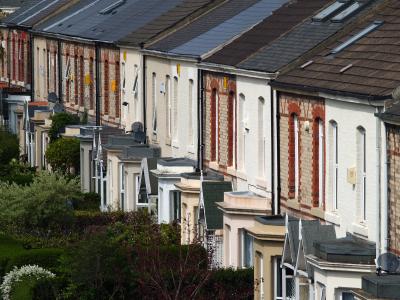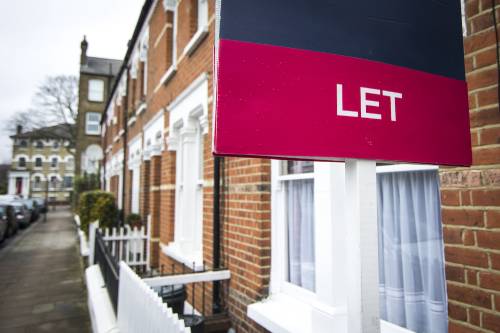
Insurance Perks and Pitfalls for UK Landlords
Smart technology is no longer confined to high-end, owner-occupied homes. Over the past few years, it has made its way into rental properties across the UK, offering landlords new ways to improve security, monitor maintenance issues, and streamline property management. In 2025, smart tech is fast becoming a competitive advantage for landlords, particularly in a market where tenants expect more and insurance premiums are rising.
But what does smart technology really mean for your landlord insurance? Can it reduce your premiums, or could it introduce new complications during a claim? In this blog, we explore the most popular smart devices for landlords, the potential benefits and risks, and what insurers expect from landlords using these technologies.
What is Smart Technology in a Rental Property?
Smart technology, also referred to as connected home tech, includes internet-enabled devices that automate, monitor, or remotely control systems within a property. These tools are designed to make homes safer, more efficient, and easier to manage.
For landlords, some of the most popular smart devices include:
- Smart locks that allow keyless entry and remote access
- Video doorbells with motion detection and live video feeds
- Smart smoke and carbon monoxide detectors that send alerts to your phone
- Water leak detectors that notify you of leaks before they cause serious damage
- Thermostats that can be programmed or controlled remotely for energy efficiency
- Smart security systems and CCTV with mobile access
These tools are not just convenient. They can help prevent some of the most common and costly insurance claims, including theft, fire, water damage, and liability from unsafe conditions.
How Smart Tech Can Benefit UK Landlords
One of the key advantages of smart home devices is the ability to detect and address issues early. For example, a small water leak can go unnoticed for days or weeks in a traditional setup. But a smart leak detector can alert you instantly, helping you arrange repairs before the problem escalates.
Here are some specific benefits for landlords:
Enhanced Security
Smart locks and video doorbells can significantly improve property security. These devices deter break-ins and provide evidence in the event of a burglary or vandalism. This can lead to fewer claims and potentially lower premiums over time.
Reduced Damage and Repair Costs
Early alerts from water or smoke detectors can help you act fast, reducing the extent of damage and making claims less likely or less costly. Insurers value proactive risk management, and this can reflect positively in your cover options.
Energy Efficiency
Smart thermostats and lighting controls help reduce energy usage. While this might not directly impact your insurance, it can make your property more attractive to eco-conscious tenants and improve your property’s EPC rating.
Easier Property Management
Remote access allows you to manage certain property issues without being physically present. This is especially useful for landlords with multiple properties or those living far from their rental units.
Can Smart Tech Lower Your Insurance Premium?
 Some insurers now offer discounts or preferential terms for landlords who install certain types of smart devices. For example, if your property is protected by an approved smart security system, you may qualify for reduced premiums. Likewise, having monitored smoke alarms or water leak detectors can lead to improved policy terms.
Some insurers now offer discounts or preferential terms for landlords who install certain types of smart devices. For example, if your property is protected by an approved smart security system, you may qualify for reduced premiums. Likewise, having monitored smoke alarms or water leak detectors can lead to improved policy terms.
However, it is important to note that not all insurers treat smart tech the same way. Some may require you to install devices from approved brands or ensure that they are regularly maintained and functioning correctly. Always check your insurer’s requirements before assuming a device will impact your policy.
Even if no discount is immediately available, smart devices can still help you avoid claims. And a lower number of claims can contribute to lower premiums over the long term.
The Pitfalls: What Landlords Should Be Aware Of
While smart tech offers many advantages, it is not without risks. There are several potential pitfalls that landlords should consider before relying too heavily on these devices.
Device Failure or Connectivity Issues
Most smart devices rely on a stable internet connection and power supply. In the event of a power cut or broadband outage, your security system, leak detector, or smart thermostat may stop functioning. If damage occurs during this downtime, it could affect your insurance claim.
Data Privacy and Legal Concerns
Installing cameras or microphones in a rental property must be handled with care. Tenants have a legal right to privacy, and any monitoring devices must comply with UK laws, including the General Data Protection Regulation (GDPR). For example, internal CCTV or audio recording devices could be considered a violation of your tenant’s rights unless clearly disclosed and agreed upon.
Shared Access and Changeovers
If a smart lock or other device is connected to a tenant’s phone or email account, you must ensure that access is revoked when the tenancy ends. Failing to do this could result in security issues or disputes, and in some cases, it could even invalidate part of your insurance if it leads to unauthorised access or theft.
Insurer Expectations
Your insurer may require you to report the presence of smart technology as part of your cover. If a claim arises and you have not disclosed the devices, it could complicate or even invalidate your policy. Additionally, if your insurer expects you to respond to alerts from smart devices and you ignore them, they may view it as negligence.
Best Practice for Landlords Using Smart Devices
To maximise the benefits and avoid the pitfalls of smart technology in rental properties, consider the following best practices:
- Inform your insurance provider of any smart tech installed in the property.
- Choose reputable brands and ensure the devices are regularly updated and maintained.
- Secure tenant consent for any devices that record or monitor activity.
- Keep records of alerts and actions taken in response to them.
- Ensure all smart tech is GDPR compliant, especially if it collects personal data.
Why Goldcrest Insurance?
Smart technology can be a valuable asset for landlords, offering better security, early warning of potential problems, and increased convenience. It may even help reduce insurance premiums or claim frequency when used responsibly. However, landlords must understand the limitations, legal implications, and insurance requirements associated with these devices.
At Goldcrest Insurance, we work with landlords across the UK to ensure their properties are properly protected, whether they use traditional systems or the latest smart tech. If you’re unsure whether your current policy reflects the reality of your setup, our team is here to help.
Contact us today for a free policy review or to discuss smart technology cover options tailored to your rental properties.




